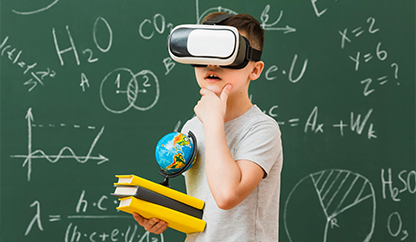
Virtual Learning Platforms
One of the most prominent ways technology has impacted education is through virtual learning platforms. These platforms offer a vast array of educational resources, including interactive lessons, video tutorials, and educational games. Since these resources are accessible online, they break the barriers of distance and provide access to quality education to children in even the remotest corners of the country. Moreover, these platforms often cater to various subjects and languages, making them inclusive and relevant to diverse groups of underprivileged children.
Mobile Learning Applications
The widespread adoption of smartphones has made mobile learning applications a game-changer in the education sector. These apps offer a plethora of academic content, ranging from basic literacy and numeracy to advanced subjects. For underprivileged children who may not have access to traditional schools or books, mobile learning apps provide an affordable and efficient means of learning. Additionally, these apps often have features like progress tracking and quizzes, fostering a self-paced and engaging learning experience.
Online Tutoring and Mentorship
For underprivileged children facing challenges in specific subjects, online tutoring and mentorship programs offer personalised guidance. These programs connect students with qualified educators and mentors who can address their individual learning needs. By leveraging video conferencing and messaging platforms, students can receive academic support and encouragement, helping them build confidence and excel in their studies.
Digital Open Educational Resources (OER)
Open Educational Resources (OER) are freely available digital materials that can be used for teaching, learning, and research. These resources include textbooks, videos, and interactive simulations, among others. By utilising OER, educators can create diverse and engaging content for their classrooms without incurring additional costs. For underprivileged children, access to these resources can significantly expand their learning opportunities, ensuring they receive a well-rounded education despite resource constraints.
E-Learning Platforms for Skill Development
Beyond traditional academics, technology has also facilitated skill development among underprivileged children. E-learning platforms that offer courses on vocational skills, entrepreneurship, and digital literacy empower children with practical knowledge that can lead to improved employability prospects in the future. By enhancing their skill sets, these children can break the cycle of poverty and contribute positively to the socio-economic development of their communities.
Conclusion
The role of technology in enhancing education access for underprivileged children in India cannot be overstated. From virtual learning platforms to mobile learning apps and online tutoring, technology has revolutionised how education is imparted and received in the country. By providing access to quality educational resources, technology has opened doors of opportunity for countless underprivileged children to realise their full potential and lead better lives. However, it is essential to ensure equitable distribution of technology and internet connectivity to bridge the digital divide further. Only through concerted efforts can we create an inclusive and empowered generation that will shape the future of India positively.

Be the Reason of Someone’s Smiles today!!